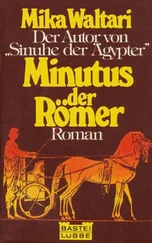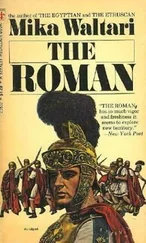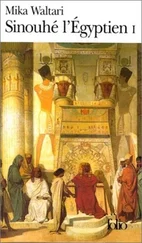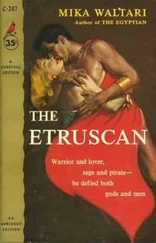But when the greater number of the audience left the kasbah, Khaireddin gathered about him the trustiest of his raises for a nocturnal conference. Not even Abu el-Kasim was invited, though Andy and I were allowed to attend on condition of secrecy. This time Khaireddin spoke in a different tone. He stroked his beard vigorously, his face was grave, and he did not even feign confidence in the outcome.
“Only a miracle from Allah can save us,” he said, “and experience has taught me not to expect miracles in warfare. We must seek a pitched battle, for the ruinous city walls would collapse under bombardment and the treacherous inhabitants would sooner stab us in the back than fight against the Emperor. At the same time we must keep an eye upon the Christian slaves packed in the cellars beneath our feet. Nor do I trust the Arab horsemen, for as soon as they’re fired on with cannon and harquebus they will scatter like chaff before the wind. Allah’s will be done. Let us try our luck in pitched battle rather than seek safety in shameful flight, which in any case presents its own difficulties.”
He shook his head, glanced about him sourly, and went on, “The first essential is to get rid of the Christian prisoners. Many are fit to bear arms-even to ride-and one traitor among us is enough to prevent our return to the city. I am no cruel man, as you know, but these prisoners number eighteen or twenty thousand, and for the sake of our own lives we must set to work immediately if all are to be strangled before sundown. Let us console ourselves for the financial loss involved by the thought that when Allah turns the leaves of his great book on the Last Day, the slaying of these unbelievers will be accounted to us for merit.”
But at this even the most loyal captains looked askance at one another, and Sinan, who had invested his whole fortune in Christian slaves and made good money by hiring them out, fingered his sparse beard and exclaimed, “Not my worst enemy could call me sentimental, but so cruel a deed would forever sully our name and fame in every country in the world. The Christians would avenge their death on those Moslems who sigh in their dungeons, and my stomach turns over at the thought of the loss that would be caused us by so hasty an action. Let us rather stack powder barrels beneath the vaults so that if the worst happens we can blow up the whole kasbah; for if Allah should give us the victory, how damped would our rejoicings be by any needless loss!”
His cautious plan prevailed. When early next morning the Emperor’s forces marched from their camp, we left the city to resume our battle with the most experienced and seasoned troops of Christendom. In this Khaireddin acted more courageously than did the Sultan and Grand Vizier in Hungary, though it must be admitted that he had no choice.
Once drawn up in order of battle on the plains, our numbers seemed far from contemptible. The white-clad Arab horsemen covered the slopes of the low hills and the brave inhabitants of Tunis, driven from the city with whips, had armed themselves with cleavers and carving knives, since Khaireddin after the loss of his arsenal in La Goletta could give them nothing better. In numbers, at least, we were nearly equal to the Imperial troops, though not quite ninety thousand as the Emperor’s historians afterward reported to enhance their sovereign’s glory.
I followed Andy’s cannon, armed with a light musket and a scimitar. It was not from ambition or love of fighting that I marched with the rest, but simply because I felt safer among Khaireddin’s janissaries and renegades than in the turbulent city. But the battle lasted little longer than the prayer of one girt for a journey. When the Imperial infantry advanced in squares, the Arab riders poured down the slopes in scattered groups and with wild howls discharged a rain of arrows into the enemy ranks. But the answering artillery fire veiled the yellow battlefield in clouds of smoke, and with even wilder yells the Arabs scattered like chaff. They caught up in their flight the bold defenders of Tunis and swept back into the city more swiftly than they had come. Meanwhile we discharged our cannon. Khaireddin, mounted on his champing steed, noticed that he was now somewhat solitary on that wide field; there were but four hundred or so renegades about him, while thirty thousand well-trained Imperial soldiers were steadily advancing, to say nothing of cannon and muskets.
In this most perilous moment of his life the lord of the sea kept his wits about him. Calling to Allah for help in a voice of thunder, he then exhorted his men to deserve Paradise and hold up the enemy by resolute fighting, while he sought to persuade the fugitives to return. He then set spurs to his horse and galloped so speedily back to the city that many of those he pursued fell beneath his horse’s hoofs.
To us who remained fell the honor of gallantly engaging the whole Imperial army, firing off our cannon once more and shoulder to shoulder defending ourselves against the advancing Germans and Spaniards. Our only hope of safety lay in keeping close order and retiring step by step on the city, since unlike Khaireddin we had no horses at our disposal.
When at last, bleeding and exhausted, we reached the city we found battle raging in the streets. The inhabitants hurled themselves upon the Turks and renegades and from the housetops showered down stones, pots, cauldrons, and whatever else they could lay hands on. They screeched that they would throw off the yoke of the High Porte and greet Muley-Hassan with rejoicing as their deliverer. Then the white flag was run up on the kasbah, and when Khaireddin sought to enter it and save his treasure he found the gates barred, while the Christian slaves who had freed themselves of their shackles greeted him with a hail of stones from the walls, wounding him in head and jaw.
What wonder then that before the gates of the kasbah Khaireddin lost all control of himself, ground his teeth, and yelled between foaming lips, “All is lost! The dogs of unbelievers have captured the citadel and stolen my treasure!”
Terror overwhelmed me when I saw that all was indeed lost. I tried to run after Khaireddin’s horse and hang onto its tail, but my only reward was a kick in the stomach. With a howl of agony I writhed on the ground clutching my belly until Andy dragged me to my feet and led me away, cutting a path through the mob with his sword.
When the Arab horsemen saw that the battle was lost and that Khaireddin had fled, they quickly tore up their treaty with him and galloped off toward the Imperial army, each striving to be the first to pay homage to Muley-Hussan and seek the Emperor’s protection. Their eager yells of peace so alarmed the Spaniards that they drove their rests into the ground again and fired their harquebuses into the advancing hordes. Many hundred Arabs lost their lives, or at least their splendid horses, before the unfortunate mistake was discovered. Was this perhaps the judgment of Allah upon them for their treachery?
Meanwhile, the inhabitants broke off palm branches and stripped the trees in their gardens so as to hail in time-honored fashion the victorious Muley-Hassan and the Emperor, who entered Tunis in his company. They were therefore utterly dismayed when Germans, Italians, and Spaniards with sword in hand poured in to win salvation by murdering every Moslem they could lay hands on, and to plunder the city.
The sack of Tunis continued for three days, and I have been told that in the course of it no fewer than one hundred thousand Moslems were slain, whether they belonged to Muley-Hassan’s party or to Khaireddin’s.
But I have run ahead of events, and must relate what happened after Khaireddin had fled from the gates of the kasbah. Loyally followed by Sinan the Jew and other bold captains, he made off so swiftly as to abandon the horsetail switches in the street. Here it was that Andy seized an Arab horse by the bridle, threw of? the rider, and pushed me up in his place, so that I found myself very suddenly clinging to the saddle of a shying steed and fumbling frantically for the reins. Andy roared at me to ride to Abu el-Kasim’s house where he would join me as soon as he had collected enough horses. As I left I saw him snatch up Khaireddin’s standard, roaring to janissaries and Mussulmans to rally to the Crescent.
Читать дальше











